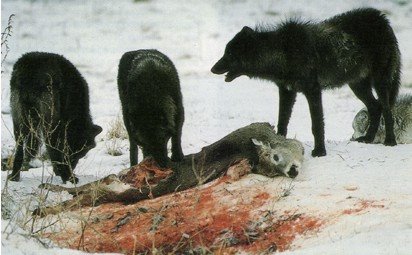Two years ago this month, a Saudi prince caused a media splash — and raised eyebrows — when he donated $20 million each to Georgetown and Harvard universities to fund Islamic studies.
Although few details have been released about how the money has been spent, at Georgetown, the money helped pay for a recent symposium on Islamic-Western relations held in the university's Copley Formal Lounge. . .
Some call the Saudi gift Arab generosity and gratitude for the years American universities have educated the elite of the Arab world. Others say the sheer size of the donations amounts to buying influence and creating bastions of noncritical pro-Islamic scholarship within academia.
"There's a possibility these campuses aren't getting gifts, they're getting investments," said Clifford May, president of the Foundation for the Defense of Democracies. "Departments on Middle Eastern studies tend to be dominated by professors tuned to the concerns of Arab and Muslim rulers. It's very difficult for scholars who don't follow this line to get jobs and tenure on college campuses.
"The relationship between these departments and the money that pours in is hard to establish, but like campaign finance reform, sometimes money is a bribe. Sometimes it's a tip."
The $40 million gift from the Saudi donor, Prince Alwaleed bin Talal, was the latest in a tradition that started in the 1970s — Muslim donors pumping millions of dollars into American universities to fund Islamic studies, hire faculty specialists in Islam and fund books and seminars on the world's second-largest religion.
This summer, Harvard appointed its Islamic history professor, Roy Mottahedeh, to head its Prince Alwaleed bin Talal Islamic Studies Program. Harvard is hiring the first of four endowed chairs in the program and is using some of the $20 million to preserve a collection of Islamic documents.
On Nov. 3, the university hosted its first Islamic studies conference — named after Prince Alwaleed — on "Interpreting the Islamic Tradition in the Contemporary World."
Harvard would not provide additional details about the disbursement of the funds, nor would Mr. Mottahedeh respond to numerous requests for an interview.
At Georgetown, the money was funneled toward its Center for Muslim-Christian Understanding, which was quickly renamed the Prince Alwaleed bin Talal Center for Muslim-Christian Understanding. The center, part of the Edmund A. Walsh School of Foreign Service, trains many of America"s diplomats.
The Alwaleed Center is tucked away in a small suite of offices in the Bunn Intercultural Center. Its reception area is decorated with blue and white Pakistani tile, a framed page from the Koran and mother-of-pearl depictions of a menorah, the Nativity and the Dome of the Rock. The center's aim, according to its mission statement, is to "improve relations between the Muslim world and the West and enhance understanding of Muslims in the West."
The center's director, John Esposito, a prolific writer and praised by many as being a national authority on the religion, was severely criticized by several scholars for downplaying the threat of Islamic terrorism in the 1990s when he was a foreign affairs analyst for the State Department.
Mr. Esposito, "more than any other academic, contributed to American complacency prior to 9/11," Martin Kramer, a fellow at the Olin Institute at Harvard, wrote in a Jan. 2, 2006, commentary on his blog, sandbox.blog-city.com.
"[He has] proved that he's still a magnet for Arab and Muslim money," Mr. Kramer wrote. "Prince Alwaleed apparently decided that while Esposito's reputation may be dented, the professor still has some value in him."
Mr. Esposito declined to be interviewed for this article but did defend himself in several e-mails. . .
Mr. Esposito said the number of programs sponsored by his center went from 27 last year to 22 this semester alone. The first of three new faculty, Ibrahim Kalin, a scholar on Sufiism and Islamic philosophy, is slated to come on board next fall.
A month before the gift was publicly announced, Mr. Esposito was one of four persons flanking Prince Alwaleed before a photographer at the George V hotel in Paris. It was then that the prince told Georgetown officials of their $20 million windfall — and that Mr. Esposito would oversee how the money was spent.
. . . Winfield Myers, director of Campus Watch, a watchdog group under the aegis of the Middle East Forum think tank, said it's too early to tell whether the prince is getting his money's worth. One sign of success is if a university can place its recent doctoral graduates in positions of influence.
"The prince knew very well Georgetown's in a milieu filled with lobbyists and opinion makers; thus any program of his will exert more influence there than at a university not in a power center like Washington," Mr. Meyers said. "The grant also gave Esposito a much bigger microphone. When you've got a $20 million institute, that amplifies your voice considerably."
The Saudi Embassy's press office did not respond to requests for comment on this article, and a spokeswoman for Prince Alwaleed said he was "too busy" to respond.
According to one Saudi press organization, the grants are meant to promote understanding and change America's perceptions of Islam in the most fertile place, the university campus.
"The tendency, in some quarters, to identify Islam with fanaticism or even terrorism persists and has not been completely erased from the popular mind in the West," observed a commentator in a March 1, 2002, article in Ain al-Yaqeen, a weekly controlled by the Saudi royal family.
To that end, it continued, the late Saudi King Fahd paid for a "number of academic chairs in some of the most respected universities in the developed world."
The practice started around 1976, when the Saudi government established a King Faisal Chair in Islamic Studies for $1 million at the University of Southern California.
In 1979, Saudi Aramco World magazine published a list of recent Middle Eastern gifts, including $200,000 from the Saudis to Duke University for a program in Islamic and Arabian development studies; $750,000 from the Libyan government for a chair of Arab culture at Georgetown University; and $250,000 from the United Arab Emirates for a visiting professorship of Arab history, also at Georgetown.
In 1986, Saudi arms dealer Adnan Khashoggi donated $5 million toward a sports center to be named after him at American University. Since then, grants for endowed chairs in Islamic studies and Middle Eastern studies centers have popped up at the University of California/Santa Barbara; Columbia University; Rice University; University of Arkansas; University of California in Los Angeles; and the University of California/Berkeley, among many others.
"Arab studies at Berkeley were totally revitalized by this money," said Emily Gottreich, vice chairman for UC/Berkeley's Center for Middle Eastern Studies. "We redefined what Arab studies is."
In 1998, the Sultan bin Abdulaziz al Saud Foundation announced a $5 million gift to fund visiting professors and scholars, research and outreach funds and new quarters for Berkeley's Arab and Islamic Studies Center.
"Our post-docs have gone on to important tenure-track academic jobs," Ms. Gottreich said, listing 11 institutions, including Oxford, DePaul, Fordham and Harvard universities. "There's a market out there for PhDs with expertise in the Middle East."
. . . There are 17 federally funded centers on American college campuses devoted solely to Middle Eastern studies centers and another 30 to 40 that do not receive federal aid, according to Amy Newhall, executive director of the Middle East Studies Association at the University of Arizona. Not counting several positions at Georgetown University, she estimated at least 10 chaired professorships currently funded by Saudis at major universities.
"With all the talk of the Israel lobby, no one talks about the Saudi lobby," Mr. Meyers said. "There is no counterweight to Saudi influence in American higher education."
Indeed, Ain-al-Yaqeen reported that King Fahd has spent "billions of Saudi riyals," around the world.
"In terms of Islamic institutions, the result is some 210 Islamic centers wholly or partly financed by Saudi Arabia, more than 1,500 mosques and 202 colleges and almost 2,000 schools for educating Muslim children in non-Islamic countries in Europe, North and South America, Australia and Asia," the paper reported.
. . . Mr. Kramer, also the author of "Ivory Towers on Sand: The Failure of Middle Eastern Studies in America," says American universities have allowed themselves to be purveyors of Saudi influence and opinion.
"Universities generate ideas, and [Prince Alwaleed] regards one idea — the 'clash of civilizations" — as positively dangerous to Arabs and Muslims," he wrote on his Web site, martinkramer.org. "So he has embarked on a grand giving spree, to create academic 'bridges" between Islam and the West, and specifically between the Arab world and the United States ...
"The mind boggles at the possibilities, when you think of the purchasing power of the world's fifth-richest man," Mr. Kramer continued. "Of course, this is why we can't ever expect to get the straight story on Saudi Arabia, Wahhabism and oil from people who operate within Middle Eastern studies. If you want a fabulously wealthy Saudi royal to drop out of the sky in his private jet and leave a few million, you had better watch what you say — which means you had better say nothing."
Prince Alwaleed, 52, — who slipped from the fifth richest person in 2005 to the 13th this year, according to Forbes magazine — is best known to some Americans as the man who offered $10 million to the victims of the September 11 attacks on the World Trade Center in New York City. That money was rejected by Rudolph W. Giuliani, then the mayor, after the prince scolded the U.S. for favoring Israelis over Palestinians.
Prince Alwaleed found more welcoming recipients in academia.
In 2002, he donated $500,000 to the George Herbert Walker Bush Scholarship Fund, established by the Phillips Academy in Andover, Mass. In 2006, he donated $10 million to the Weill Medical College of Cornell University.
He defends such gifts in interviews, saying that he has financed study programs about American culture overseas, including a $10 million gift to found a Center for American Studies at American University in Cairo and $5.2 million for a similar center at American University in Beirut.
Prince Alwaleed's Cairo and Beirut projects explain American culture, but according to their Web sites, offer no courses in Christianity — America's majority religion. Meanwhile, typical courses at the Georgetown center are "Islamic Theological Development" and "Islamic Religious Thought and Practice."
Zuhdi Jasser, a Phoenix physician and a Muslim who is chairman of the American Islamic Forum for Democracy, says Islamic governments are looking for a free pass.
"Islamists such as the radical fundamentalists seen with the Saudi Wahhabis exploit American universal tolerance to provide a vehicle for the dissemination of their propaganda free of critique," he said in an e-mail. "It is important to emphasize — 'free of critique' ... it is the tolerance which permits that.
"But I would hope that we correct our response not by changing our tolerance but by intensely critiquing political Islam and its incompatibility with our pluralistic democracy. America"s laboratory of freedom and liberty should not change."
.
 I never thought that it would be possible for a Republican to come close to the cynicism and hypocrisy regularly displayed by those on the left side of the aisle. Think Harry Reid's political decision to surrender to four al Qaeda suicide bombers in April.
I never thought that it would be possible for a Republican to come close to the cynicism and hypocrisy regularly displayed by those on the left side of the aisle. Think Harry Reid's political decision to surrender to four al Qaeda suicide bombers in April.






























































